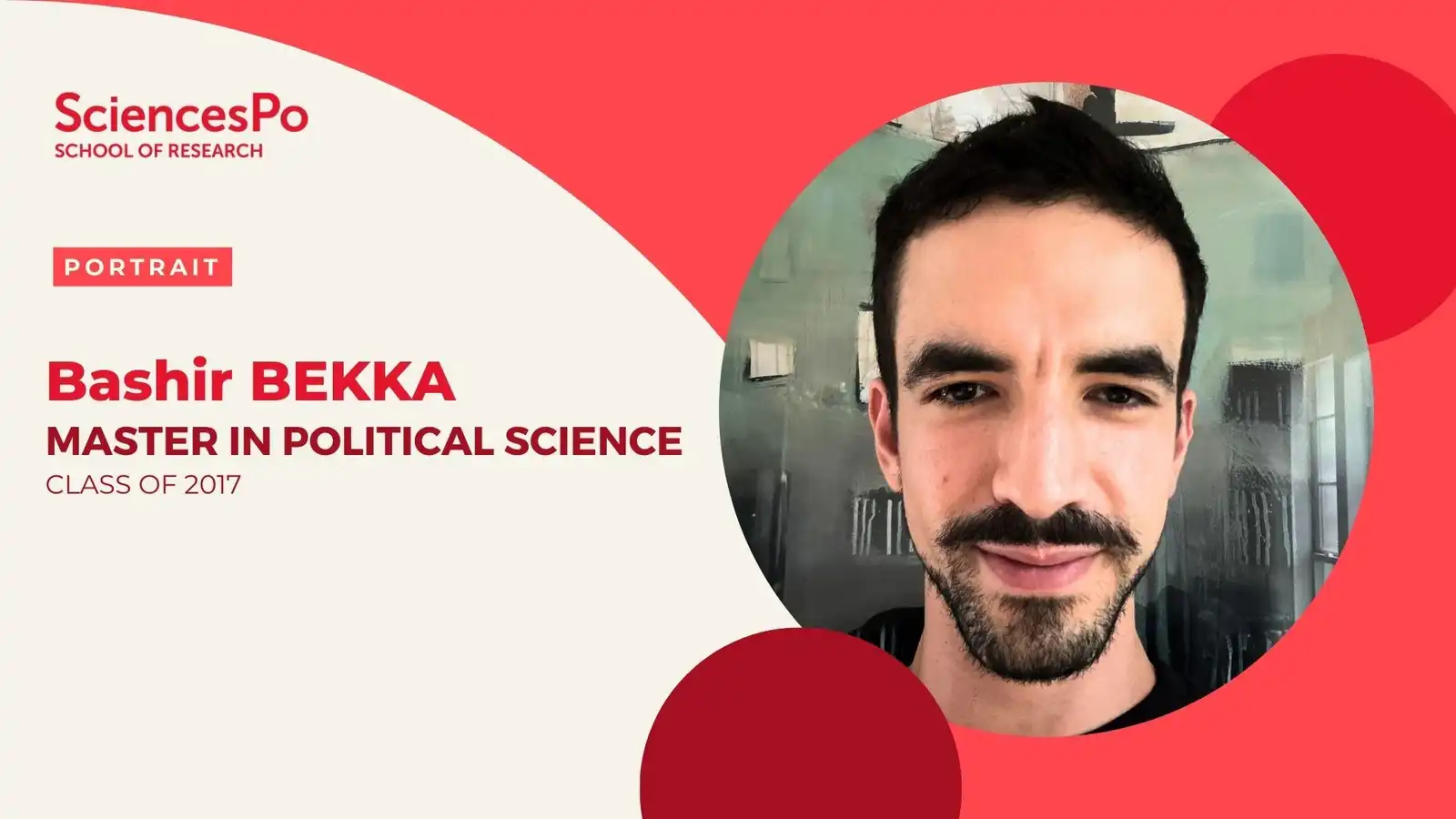Home>Portrait of Bashir Bekka
18.09.2024
Portrait of Bashir Bekka
Can you tell us about your academic journey? How did your interest in political science first develop?
My interest in political science stemmed from a desire to understand the foundations of politics and to explore the formation, dynamics, and interactions between diverse communities. I was drawn to Sciences Po for its multidisciplinary program, international student body, the locations of the Menton and Paris campuses, and the opportunity to spend my year abroad in Palestine.
What did you gain from your years studying at the School of Research? What memories do you have of your school, classmates, and professors?
The School of Research cultivated an environment that stirred my independence and learning how to learn. Engaging with my peers and the people living in Paris allowed me to develop robust research and analytical skills. The diversity of my classmates, who went on to become authors, YouTubers, beekeepers and social workers, reinforced my belief that significant differences in interests and backgrounds lead to higher rates of mutual growth and understanding. I was also particularly grateful for the chance to explore and partake in city life, playing jazz at piano bars and writing poetry in cafés.
Which professor or course had the biggest impact on you?
Astrid von Busekist for her continuous mentorship and strategic vision. She encouraged me and had faith in my potential.
On a conceptual level I was especially impressed by Tobie Nathan's methods, by which he conjured unique and profound insights such as the idea of a "Parlement des Dieux" (Parliament of Gods).
What is your current role? What have been the key stages of your professional journey, and which projects have had the most significant impact on your career path?
I support startups in their technology roadmap, strategy, due diligence, product development, and go-to-market. After launching my career at Apple and then transitioning to VMware, I made the leap into the startup world two years ago.
Two projects come to mind, collaborating on an AI platform for personalized HIV and cancer vaccines with a team of researchers spanning Cairo, London, and Rome, and establishing the blockchain tokenization division for the world's largest options exchange based in Chicago.
How has your education contributed to your current role?
My research experience encouraged me to shape my own path, thereby giving me the opportunity to assimilate knowledge and navigate domains beyond the traditional curriculum. This has proven really helpful in my work, which requires continuous upskilling in evolving technologies (networks, spatial computing, security, cloud, machine learning) and immersing myself in diverse sectors, from geolocation to luxury.
What advice would you give to a student starting their journey today?
Ludwig Wittgenstein notes that when we think about the future, we tend to assume it will continue on its current trajectory, when in reality it changes direction constantly. COVID is a good example. Or that incoming SciencesPo students will witness the rise of agentic AI as sophisticated as highly qualified graduates, before they get their diploma (3-5 years).
In that context I'd suggest embracing uncertainty, getting comfortable with lifelong learning, cultivating your unique strengths and perspective while also honing your collaboration skills. I also find it useful to explore different fields of knowledge, work/creation, and communities. It helps uncover your talents, passions, and people who might inspire you.
The motto here is the greater the difference, the greater the opportunity to learn.
